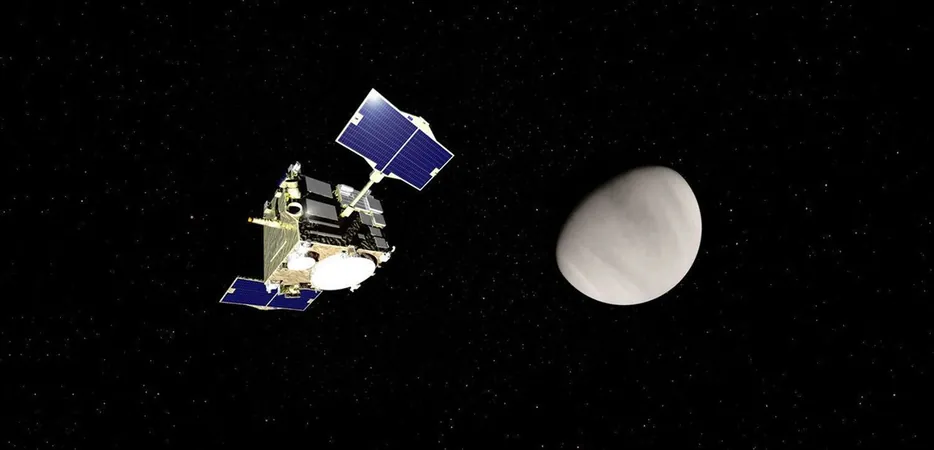
Farewell to Japan's Groundbreaking Venus Explorer: Akatsuki's Mission Comes to an End
2025-09-20
Author: Daniel
Akatsuki's Journey Through the Cosmos
On May 21, 2010, Japan launched the Akatsuki orbiter, translating to "Dawn" in Japanese, from the renowned Tanegashima Space Center. After five years of navigating the vastness of space, it entered Venus' orbit in December 2015, marking a historic achievement as JAXA's first-ever interplanetary mission.
An Eight-Year Quest of Discovery
For nearly a decade, Akatsuki has tirelessly monitored Venus' tumultuous atmosphere, employing sophisticated instruments that include ultraviolet and infrared cameras, a high-speed imager, a radio science suite, and an ultra-stable oscillator. This technological marvel enabled scientists to map Venusian clouds, detect fierce lightning, and profile temperature variations, unraveling the complex weather dynamics of our neighboring planet.
The End of an Era: Mission Termination Announced
On September 18, 2025, JAXA announced the conclusion of the Akatsuki mission, initiating termination procedures at 9:00 AM JST (8:00 PM EST; 5:00 PM PST). This decision came after a prolonged communication blackout, occurring in April 2024, during a routine operation to maintain the probe's orientation. Despite extensive efforts to re-establish contact, communications remained elusive.
A List of Achievements and Milestones
Throughout its operational life, Akatsuki not only exceeded its intended lifespan but also achieved groundbreaking milestones, such as uncovering the largest stationary gravity wave in the Solar System and offering critical insights into the meteorological phenomena that drive Venus' hyper-velocity winds. For the first time, techniques used in Earth's weather forecasting were applied to understand the dynamics of Venus.
A Grateful Goodbye
In alignment with Akatsuki's mission to deepen our understanding of Venusian meteorology and atmospheric movement, JAXA expressed heartfelt gratitude to all the organizations and individuals who contributed to this extraordinary journey. As we bid farewell to Akatsuki, it leaves behind a legacy of scientific advancement and opens new possibilities for future explorations of our enigmatic celestial neighbor.




 Brasil (PT)
Brasil (PT)
 Canada (EN)
Canada (EN)
 Chile (ES)
Chile (ES)
 Česko (CS)
Česko (CS)
 대한민국 (KO)
대한민국 (KO)
 España (ES)
España (ES)
 France (FR)
France (FR)
 Hong Kong (EN)
Hong Kong (EN)
 Italia (IT)
Italia (IT)
 日本 (JA)
日本 (JA)
 Magyarország (HU)
Magyarország (HU)
 Norge (NO)
Norge (NO)
 Polska (PL)
Polska (PL)
 Schweiz (DE)
Schweiz (DE)
 Singapore (EN)
Singapore (EN)
 Sverige (SV)
Sverige (SV)
 Suomi (FI)
Suomi (FI)
 Türkiye (TR)
Türkiye (TR)
 الإمارات العربية المتحدة (AR)
الإمارات العربية المتحدة (AR)